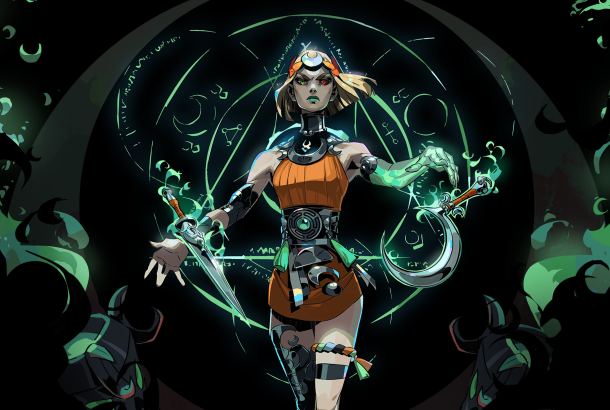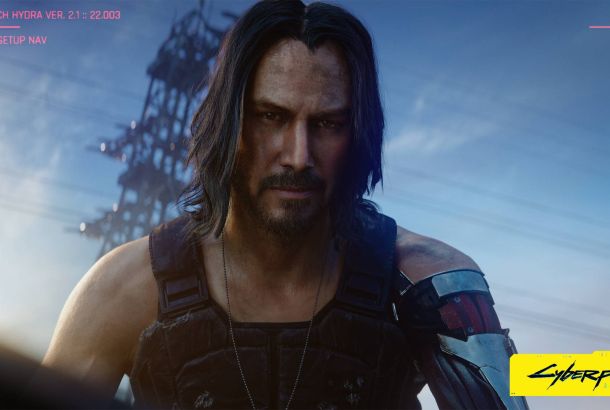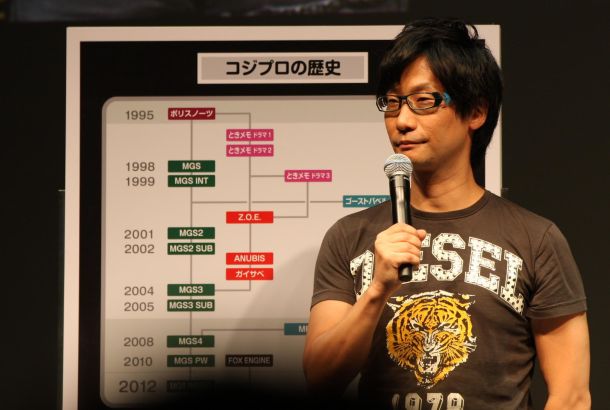Review: Middle-Earth: Shadow of War
By chrisglover
Like 2014’s Shadow of Mordor before it, Shadow of War offers an open-world action RPG set within Tolkien’s universe, though one that stands proudly as a great title in its own right.
The bulk of the praise of Shadow of Mordor was always on its innovative Nemesis System, and Shadow of War builds upon that in a big way. In short, the Nemesis System is a game mechanic by which named members of Sauron’s Uruk army rise or fall in power throughout your playthrough, dependent on Talion’s actions.
Each ‘Nemesis’ is randomly generated and has their own personality, combat mechanics, weaknesses and fears. The result is a dynamic game-world that truly feels alive, offering incredibly memorable moments that are unique to every player.
Random generation ensures every Orc is unique. Photo: Monolith ProductionsThe immense merit of the system made itself clear in the very first encounter I had with Orc captains: fresh out of the prologue mission, I wandered into an enemy camp to have no less than three captains engage me in combat simultaneously.
After barely managing to kill all three using some Gollum-level slyness that I’d rather not talk about, I was finally felled by a javelin thrown by a lowly grunt Orc.
Cue this lucky weasel proudly naming himself as ‘Snafu the Tark Slayer’, earning a promotion off the back of my embarrassing defeat and becoming somewhat of a rival of mine.
Throughout my playthrough, Snafu came back from the dead no less than five times. Each time, he’d come back pieced together with bits of metal, becoming ‘Snafu the Machine’ and constantly reminding me with increasingly manic dialogue that I was responsible for turning him into this monster.
Sorry, Snafu. Photo: Monolith ProductionsThis is just one example of how successful the Nemesis System is in generating genuinely compelling little narratives, often with character arcs that no other player will have experienced in quite the same way.
From Act II onwards, you begin to build your own Orc army. Effectively trying to out-Sauron Sauron, your task is to use this army to usurp his own from the six areas of the game, each with its own stronghold home to an Overlord and a hierarchy of captains.
This successfully weaves the brilliant Nemesis system into the main narrative and overarching goal of the game — though it does get repetitive eventually.
The Overlord of each stronghold can’t just be attacked and killed outright; you must first recruit some of the lower-level captains under his charge and infiltrate his higher ranks, leaving him wide open to a large-scale assault on his fortress.
This sounds like a lot of fun, and it is — the first few times. After that, things start to feel a little grindy, but it never quite becomes a chore until endgame, which I’ll address shortly.
In regards to the audio and visual experience, Shadow of War’s huge budget makes itself known with gorgeous and varied environments, whilst the musical score is compelling if somewhat generic.
Mordor is as huge as it beautiful — a fact you’ll find yourself resenting occasionally when you have to cross huge distances to start missions. Whilst Talion does mercifully learn abilities which make traversing the landscape much quicker, these are too often impeded by Talion’s most fearsome nemesis of all: ledges. These frequently halt your superhuman progression across the landscape as your character slowly prises himself off them, feeling more like a kitten stuck in a tree than a centuries old Gravewalker.
My enemies patiently wait for me to get off a ledge. Photo: Monolith ProductionsThe combat, on the other hand, is always delightfully responsive and smooth. A multitude of combat skills ensure that Talion always feels as powerful and efficient as The Bright Lord should, whilst the hordes of Orcs that often rush you at once ensure that even on Normal difficulty, the combat never becomes so easy as not to be fun.
Regrettably, it would be impossible review this game and not address the Oliphaunt in the room: microtransactions. For months, WB Games have come under fire for their implementation of loot boxes in Shadow of War.
The loot boxes contain armor and weapons, or Orc captains who can join your army to help defeat Sauron.
Whilst offering extra paid content in full-priced games is arguably questionable at best by itself, Shadow of War further offends by insidiously integrating the loot box system into the core game, making frequent trips to the marketplace deliberately unavoidable.
For example, you acquire a currency called Miriam simply by killing enemies and completing missions, though there is very little to spend it on other than loot boxes. You inevitably end up with thousands upon thousands of Miriam, leaving you no choice but to visit the microtransaction marketplace.
The Headhunter celebrates another loot box sale. Photo: Monolith ProductionsAt the marketplace, you soon realise that Miriam can only buy you the bottom-tier silver chest, and to buy gold and mithril chests you must use a premium Gold currency acquirable by paying real-world money.
It quickly becomes clear that the game has forgone the opportunity to implement a rewarding in-game economic system (a marketplace updated daily with cosmetics or legendary gear, for example). Instead, it really feels like every Miriam that Talion earns serves the sole purpose of manipulating you into opening your wallet to buy gold chests instead.
The worst part about all of this comes at the endgame of Shadow of War — not-so-curiously named ‘Shadow Wars’ — which sees a “bonus” ending of the game held hostage behind a mammoth grind so mind-numbing that players are driven to buy premium loot boxes just to speed it up.
Needless to say, the loot boxes are a disappointing smear on what is otherwise a very enjoyable game.
The gameplay is solid, the storyline is mostly enjoyable — though deviates from canon lore; Tolkeinites beware —, and the varied mission structures ensure that, endgame aside, the Orc-slaying never becomes tiresome.
Though frankly, even if this were not the case, the Nemesis System ensures that Shadow of War is still worth playing. As it has yet to be successfully replicated by other titles, the Middle-Earth games remain completely unrivalled in their ability to use player-NPC interaction to create a gloriously dynamic gameplay experience.







